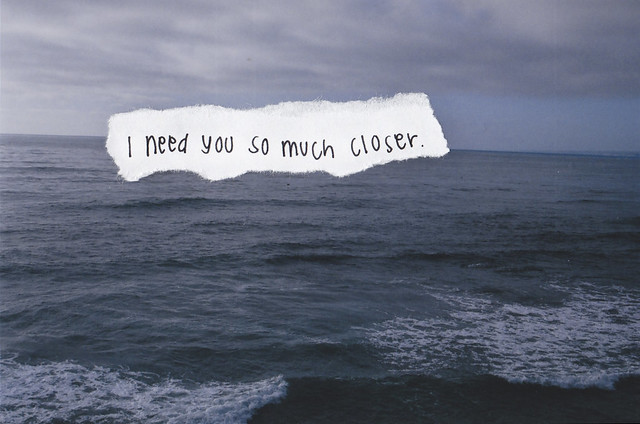
"The unhappiest people I know, romantically speaking, are the ones who like pop music the most; and I don't know whether pop music has caused this unhappiness, but I do know that they've been listening to the sad songs longer than they've been living the unhappy lives.” – Nick Hornby, High Fidelity
Therein lies the rub. Why do so many of us actively seek out the “comfort” of a sad song when we're down? If we were people that made sense, we wouldn't use music to make our melancholy deeper. Somehow, our instincts overpower that basic logical equation. Sadness, one of the central, eternal wellsprings of music, fulfills a strange function in our listening habits. We don't desire unhappiness, but when it's thrust upon us, we desire the intensification that a sad song brings.
The range of explanations is vast. On the spiritual side, musician Nick Cave believes it to be in tune with
an innate longing for divine wholeness in all people. If you're looking at science, Ohio State University Professor David Huron theorizes that
coaxing out a rush of the hormone prolactin is pleasurable without real consequence. There doesn't have to be only one answer, but in any case, it can be hard to articulate just why feeding the fire of your terrible, endless heartache feels simultaneously good and bad.
There's the idea of playing with a tooth that hurts. Despite the pain receptors telling us "Ouch, ouch. Please stop," we can't resist poking at it with our tongue. But consider that when your mouth is free of pain, you're rarely even aware of your teeth. Is it possible then that emotional pain is a way of feeling more alive and aware of our existence? Because there's nothing like the stir of musical drama, from
Bach's Chaconne to Death Cab for Cutie, to imbue your day-to-day with a little meaning.
But maybe that's a little on the masochistic side. Maybe instead, songs of constant sorrow have a social function. It is, after all, a singular experience. Both rage and love require a target, and happiness is a content feeling that doesn't have the urgency of burden. But sadness, well, you can be sad all by yourself. That's tough in a society where your emotional trouble isn't something you can acceptably share (at least until the invention of social media). If you answer the basic question of “how are you?” with a brutally honest “miserable,” expect an awkward moment. Most people aren't looking to hear that.
The melancholy song, then, is a helping hand in the absence of real people. It can help us decode the vagaries of our sorrow, and when that happens, it's as if someone finally understands – even better than we do ourselves. The old saying “misery loves company” is supposed to refer to your bummer of a friend bringing everyone down with him. When it comes to the sad song, even though it can be hard to tell sometimes, it means that you are not alone.




Leave a comment
This site is protected by hCaptcha and the hCaptcha Privacy Policy and Terms of Service apply.